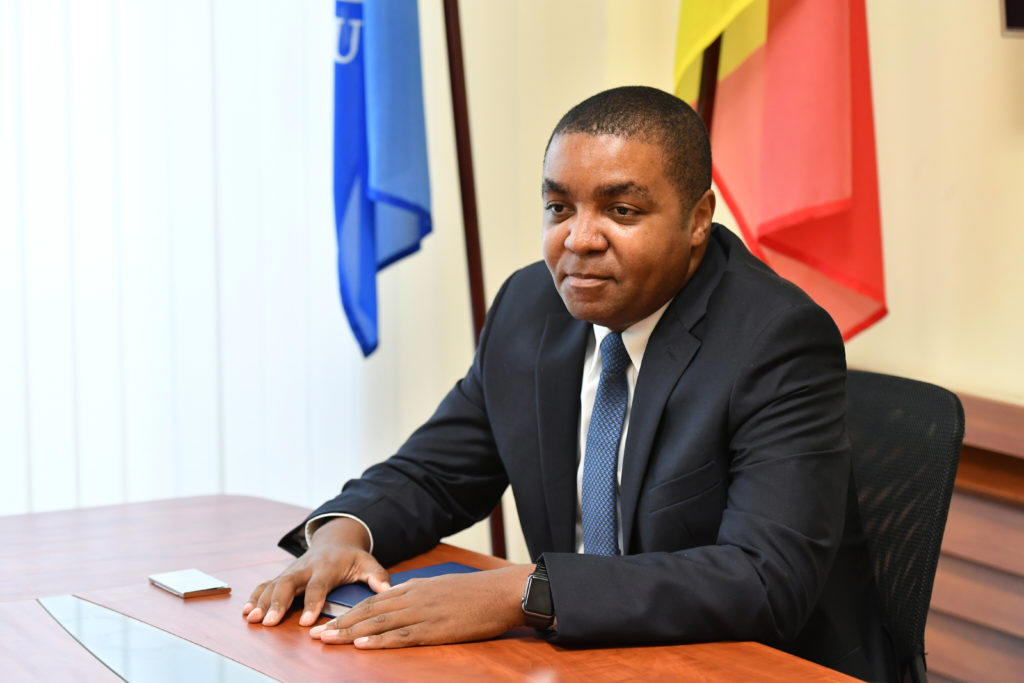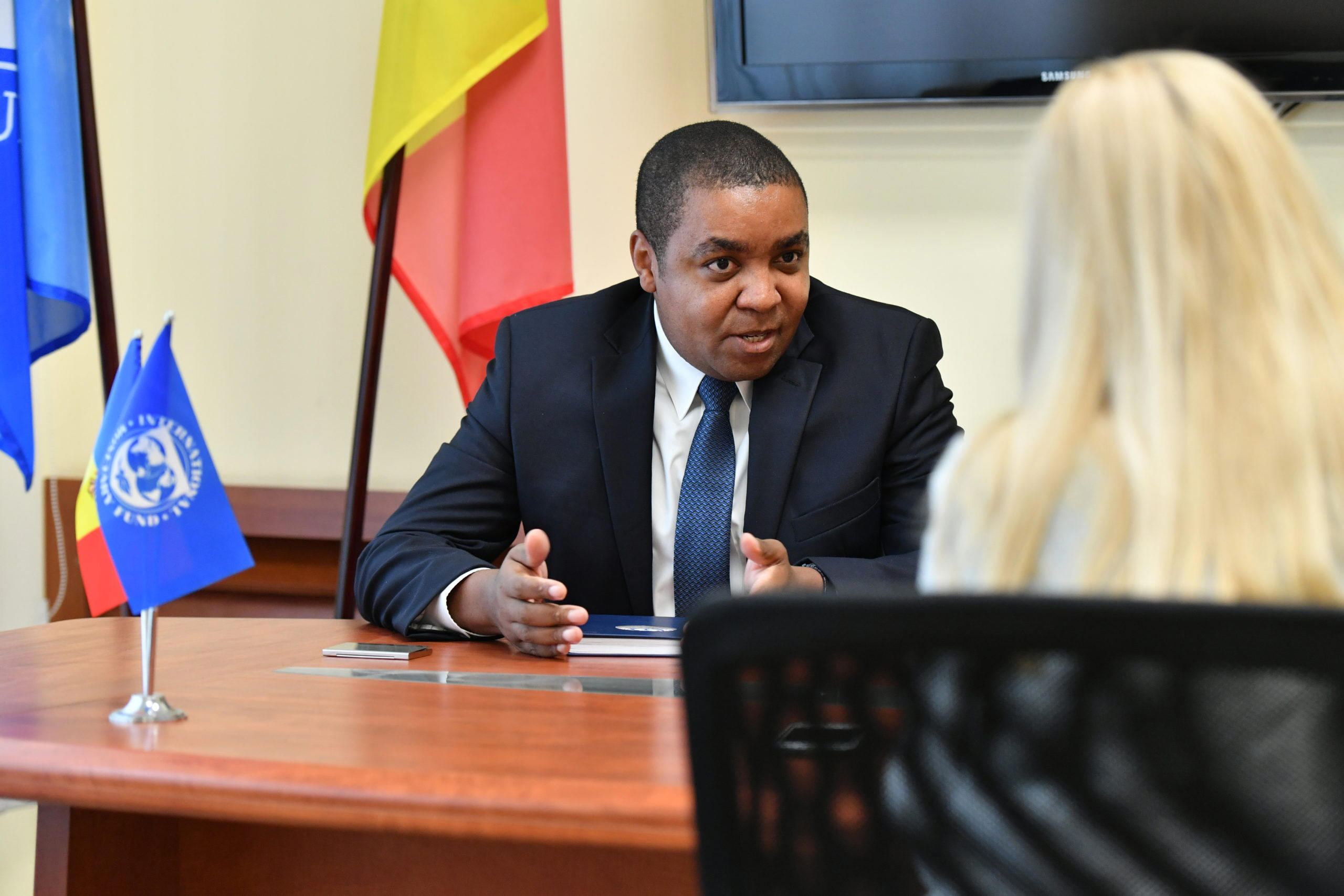
Moldova will have to report to the
IMF on how it spent the $236m received from the IMF. The IMF
expects that the authorities would use the funds “in a
responsible and transparent manner”. Rodgers Chawani, the IMF
Resident Representative in Moldova, spoke about this in an
interview with NewsMaker. He assessed the prospects for economic
growth and explained why in Fund’s view the pension age must not
be decreased and named the main problems that will have to be
tackled by the Moldovan government.
A Rationale Approach
Have the $236 million allocated to
Moldova already arrived in the country? Will the IMF indeed not
monitor its distribution in any way?
Let me start by the bigger picture. As
you know, in early August the Board of Governors of the
International Monetary Fund approved an allocation of US$650
billion to all member countries, which is an unprecedented
amount in the history of IMF. The IMF Managing Director
Kristalina Georgieva called it a "shot in the arm" for countries
that are undergoing a difficult time. On August 23 the funds
were transferred to the National Bank of Moldova.
Moldova will decide for itself how
exactly to use these funds. However, the IMF is interested in
that member countries spend the money transparently, rationally
and responsibly. The annual and quarterly financial reports of
the IMF already provide information on SDRs (a unit of account
used by the Fund – editor’s comment). And the IMF plans to
publish detailed reports on the use of the allocated money.
But what does “rationally and
responsibly” mean? What would be the IMF's advice for Moldova on
how to spend the money? What are the priorities, in your view?
Member countries are sovereign entities
and will decide themselves on how best to use the SDRs. We hope
that the decision is prudent and well-thought. At the same time,
we believe that it would be good to channel this money towards
combating the pandemic and laying the foundation for subsequent
economic recovery.
Economic recovery means support for
business, some kind of direct payments to entrepreneurs. But
will this contribute to economic growth? Maybe it is worth
investing in infrastructure projects that will create jobs?
Thank you for this question. The
pandemic has really hit both businesses and households hard. We
would have appreciated if fiscal policy were able to do more and
minimize the destructive effects of the pandemic and improve the
well-being of the population.
Beyond this response, the country has
other needs as well, and you are right on the need to address
infrastructure gaps and create more jobs. But these objectives
cannot be achieved using the one-time SDR allocation. Therefore,
there is need for a new program for Moldova that could be
supported by the IMF and other external partners.
Will the new program include the same
conditions as discussed last year with Mr. Chicu's government?
Or would you rather consider that some adjustments are in order?
Here is how we see it. The Moldovan
people voted for a new parliament which appointed a new
Government and this Government has requested a new program with
the IMF. In this context, the IMF will focus on supporting the
post-pandemic economic recovery, improving governance and
institutional reforms to foster sustainable income growth.
By the way, the problems the country
faces have not changed. In particular, the rule of law and
anti-corruption frameworks are ineffective. Public spending is
inefficient. The business environment is unfavorable. There are
large gaps in infrastructure due to under-execution of projects.
State-owned enterprises rely more on government support and the
energy sector lacks competition. And we are dealing with the
pandemic on top of it all. These will be the main issues for the
discussions on the new IMF-supported program during the next
mission.
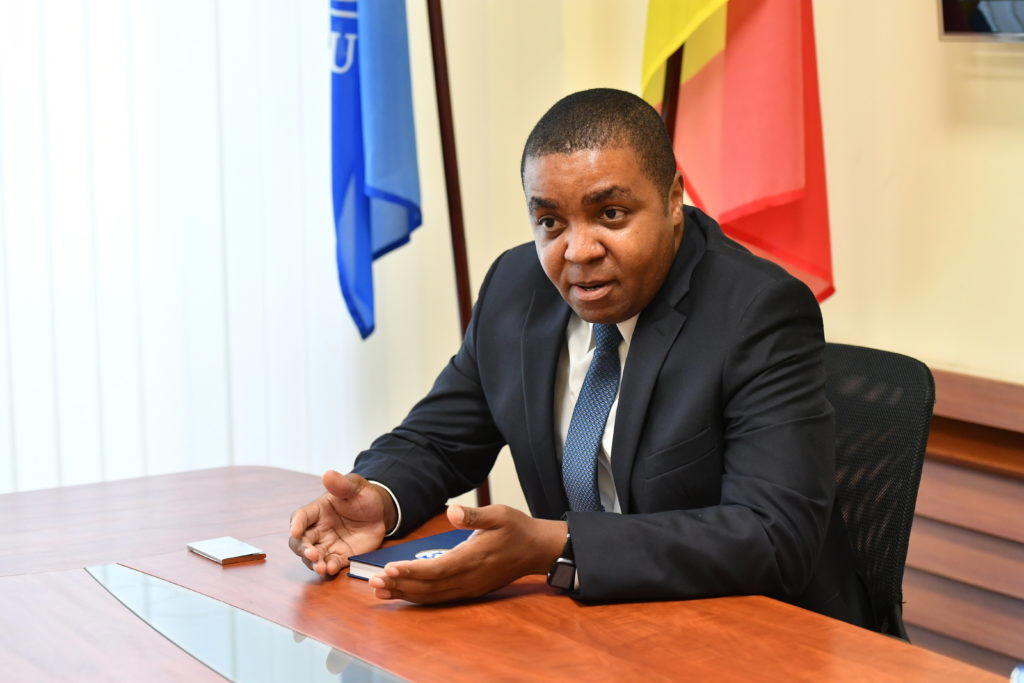
Controversial Issues
Let's discuss two most sensitive
topics on Moldova's agenda that might be reflected in on the new
IMF-supported program - pension age increase and the so-called
'Billion [Recovery] Law'. IMF's position is widely-known. But
people do not understand why it is not possible to reverse the
raise of the retirement age, or to repeal the Billion Law.
This is a good question. Let's start
with the pension reform. People have every right to hear both
sides - those who are for and those who are against the reform.
The main problem that the IMF sees is that lowering the
retirement age would put pressure on maintaining an adequate and
financially sustainable level of pensions and will put pressure
on public debt.
In Moldova, over the last 30 years, the
number of people over the age of 65 has grown from 8.5% to
12.5%. At the same time, life expectancy has also increased from
67 to 71 years. The rapid ageing and widening of life expectancy
implies that a pensioner needs several more years of support
from the government.
So, if the retirement age is lowered,
two problems immediately arise. First, the number of employees
who contribute to the pension fund would decrease, resulting
into lower contributions. Secondly, it will increase pension
expenditure on the part of government at a time when mobilizing
revenue is a serious challenge. This will undermine the
sustainability of the system and put pressure on public debt. In
our view, there is need to balance the economic and social
considerations when debating the lowering the retirement age.
One of the arguments of the opponents
of raising the retirement age is that the wages are low, and
therefore, for many, pensions are at least some kind of increase
in income. Maybe it is worth increasing wages so that people are
not that eager to retire early? Or increase contributions to the
Social Fund in order to pay decent pensions?
Of course, there are many points of
view, and there are ongoing discussions about this. I would not
want to go deeper into these topics, as they will be discussed
by our team with the Moldovan authorities when working on a new
IMF-supported program. In any case, the solution to this issue
is a balancing act between benefits and disadvantages while
ensuring that all views are taken on board.
Let's move on to the so-called Billion
Law. I am sure that this topic should be widely discussed. NBM
should have a strong balance sheet and adequate financial
buffers in order to implement its mandate fully and in a sound
and efficient manner. The balance sheet of the NBM was hit by
the massive liquidity support that was provided to the troubled
banks. The Law on Securitization has aided the NBM’s cashflows
and capital position, allowing it to fulfil its mandate of
maintaining price stability. Repealing the Securitization Law
risks undermining the institutional and policy autonomy of the
NBM, a precondition that is necessary for successful
implementation of its mandate.
Some experts say that the National
Bank is sitting on a pile of money, although it could be used to
develop infrastructure so that the money would work. At some
point, ex-President Igor Dodon proposed it. Maybe it is worth
investing these funds?
The law says that the main role of the
NBM is to ensure price stability. We will not support any
actions that would reduce the NBM's ability to achieve this
goal. This has always been our position. Since Moldova has some
outstanding credit with the IMF, this would be regarded as a
misuse of foreign exchange reserves. NBM activities undertaken
at the direction of government would lead to a decrease in its
capital and reserves position. At the same time, the impact on
inflation and exchange rate would lead to macroeconomic
volatility and financial stability concerns. This would make it
more difficult for the NBM to ensure price stability and further
undermine confidence. This is why we maintain that the financing
of the state budget should not come at the expense of central
bank’s autonomy. The benefits of this approach are there for all
to see now. Thanks to the good buffers and improved capacity at
the NBM, banks have weathered well the impact of the pandemic.
Could there have been another
solution instead of the Billion Law? For example, to leave
liabilities with the NBM.
As I understand it, this was the best
solution at the time. There were no real alternatives. Here is
what is important. Efforts must focus on identifying those who
were responsible for the fraud, hold them accountable, and make
efforts to recover the funds and assets.
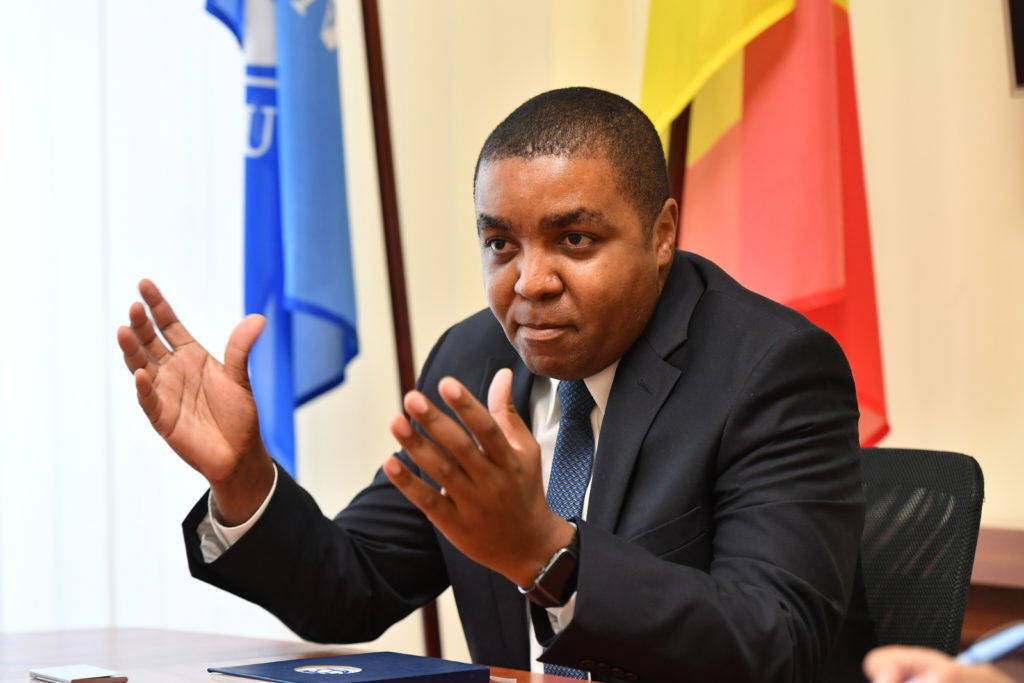
Tasks for the Government
You have already met with Prime
Minister Natalia Gavrilita, Ministers Dumitru Budeanschi and
Sergiu Gaibu. Do you think that the new Government, and its
financial and economic component in particular, is capable of
implementing the new Fund-supported program? For instance, Mr.
Gaibu and Mr. Budeanschi before joining the government were
experts, they were working outside the public system.
What I can tell you is that we had a
good and productive working relationship with with Prime
Minister Gavrilita, when she was the Minister of Finance. We
trust that under her leadership of the economic management team,
the Government will be able to deliver the program objectives.
Yes, there are ministers who used to be independent experts and
have not worked in the civil service, we stand ready to support
them to work towards a common objective for the benefit of the
country.
What do you think about this year's
Moldova's economic outlook? Can we expect growth? Are there any
short-term measures that would ensure better outcomes?
The Moldovan economy is recovering.
However, the recovery is fragile. There are risks that might
hinder the recovery. First, domestic and external demand may not
grow as fast as we expect. Secondly, the reluctance of a fairly
large share of population to be vaccinated may lead to new
variants and a worsening of the epidemiological situation, with
possible lockdowns derailing the economic recovery. Third,
people with vested interests may hinder the reforms. But in
general, we expect that the reform-minded government should come
up with a robust policy mix and a package of measures to
minimize the above risks and lay foundations for a recovery.
The authorities have already requested
an IMF-supported program, and if the program is agreed upon, it
will also contribute to this agenda. Of course counting on the
support of other external partners.
You mentioned people with vested
interests who have lost power and can do harm. What exactly do
you mean?
During any transition, when serious
reforms are underway, there are always forces that are trying to
stop them. And we must consider such risks for Moldova as well.
Are there any short-term measures for
the authorities that could be applied, say, within a month and
earn quick results?
We believe that fiscal policy should
support and target the most vulnerable populations to the
pandemic. And this is where the SDR allocation that Moldova
received from the IMF helps.
Monetary policy should ensure that
credit and liquidity flows smoothly so that those who want to
start a business or develop a business can have easier access to
financing.
It has always been a problem for
Moldovan business to get a loan on good terms. Banks are still
reluctant to lend to legal entities, targeting individuals in
their loan offers. How could this trend be reversed?
When we look at the lending market,
there is a reasonable explanation from both the demand and
supply sides. The demand for loans decreased due to the low
incomes. But now household consumption is picking up, and people
have started taking loans again. Supply is also increasing,
although this is a difficult time for banks to make lending
decisions. There is always risk that borrowers would not be able
to repay the loans, and it is very difficult to calculate how
great the risk of indebtedness is, because no one can guarantee
profitability during crisis. If you look at the numbers, credit
is growing; however, one needs to look at the sectors where
there are problems and work to support these particular areas.
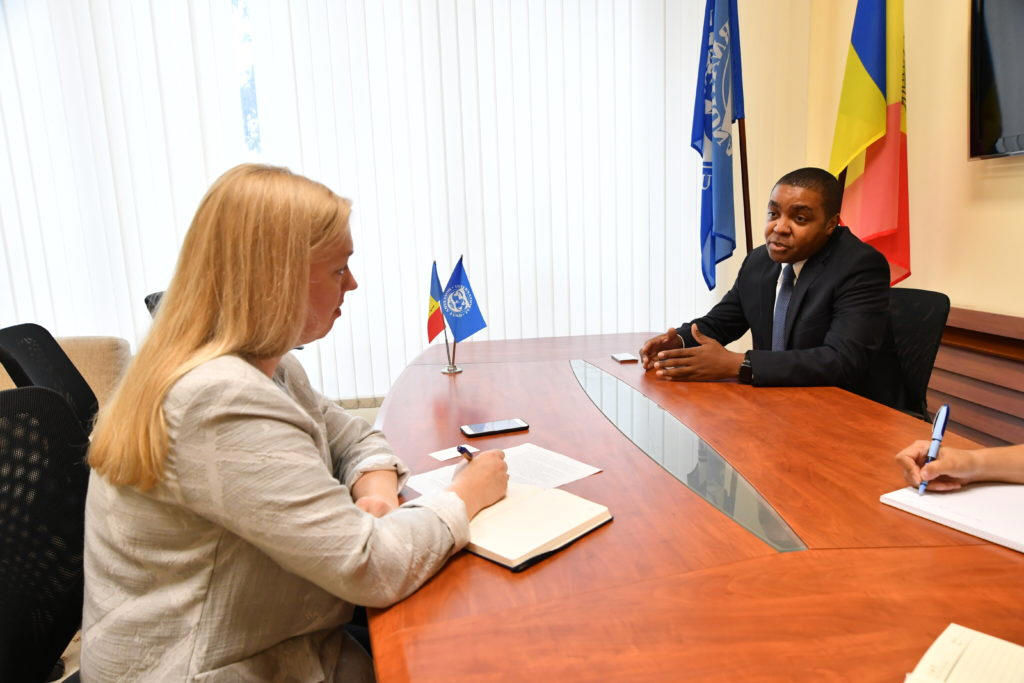
Safeguarding the National Bank
What is your opinion of the situation
at the National Bank of Moldova and in Moldova's banking system?
What further reforms are needed there?
From our point of view, the NBM has
stepped up its efforts with supportive monetary policy by
reducing its policy rates and reserve requirements. The NBM
stepped-up sales of foreign exchange and reduced its footprint
in the market. At a time when fiscal policy was shy, the central
bank remained the most active institution in supporting the
recovery. There are still several areas where reforms are
needed. There is need to preserve the hard-won gains that the
bank has achieved in recent years, including transparency of
bank shareholders, banking supervision and regulation, and
resolution frameworks. We are convinced that having a fully
instituted management in line with professional, integrity, and
procedural requirements is critical for the NBM.
Also, NBM officials dealing with
supervision need to be protected from the risk of being arrested
for carrying out their official duties.
I would like to note that the focus
should not only be on banks, but also on the non-bank financial
institutions, because risks in this sector are growing due to a
sharp increase in lending. Also, the insurance market needs to
be cleaned.
Could you give an example of specific
measures that need to be implemented in the non-bank financial
sector?
The previous IMF-supported program
focused on rehabilitating and strengthening banking sector’s
regulation. The same should be done for non-bank financial
sector. Oversight needs to be improved and legislation should be
strengthened to ensure the proper level of supervision. This is
important, given the growth of lending in the non-banking sector
and the recent build up in vulnerabilities, as sooner or later
there will be a risk of an increase in the share of bad loans.
Do you see any risk of a complete
change in the management of the National Bank of Moldova, given
that Octavian Armasu was appointed by the previous authorities?
And could this lead to instability in the NBM's work?
I would not like to speculate on that
issue.
Let's talk about inflation then. The
NBM is also in charge of it. What do you think about current
inflationary processes in Moldova and all over the world? What
can be done to reduce the impact of rising inflation on the
population?
Globally, inflation has picked up more
recently. The unprecedented monetary and fiscal support in
response to the pandemic have helped to limit output losses but
triggered inflation concerns. Food prices have risen to their
highest level since 2014, including because of adverse weather
events. In addition, oil and metal prices have increased
surpassing pre-pandemic levels amid a rapid pickup in demand and
lagging supply.
From a policy response standpoint, we
continue to believe that the priority should be on securing the
recovery including through monetary accommodation. This has to
be coupled with closely monitoring inflation and financial
stability risks.
Inflation has picked up in Moldova, also
mainly driven by higher food prices and core inflation. To a
lesser extent, it was influenced by the increase in fuel prices
and regulated prices. The situation warrants close monitoring,
and we welcome the tightening bias by the NBM as a step in the
right direction, since the underlying indicator for long-term
inflation (core inflation) has also picked up. Monetary policy
should continue to be guided by inflation developments. All
these issues will be part of the forthcoming mission discussions
with NBM.
And will the money that Moldova
received from the IMF not contribute to the growth of inflation?
Certain payments to population will surely follow.
The Ministry of Finance and the National
Bank have a joint liquidity management team that estimates in
advance the impact of the planned actions on the overall
liquidity position. There is capacity to forestall any
inflationary pressures. However, we must not lose sight of the
urgency of fiscal policy to fight the pandemic. This policy mix
only serves to underline the need for coordination, as the
interaction between fiscal and monetary policies will improve
going forward.
You have been the IMF Resident
Representative in Moldova for a year now. Could you name three
things that have surprised you in a good way in Moldova? And
something that you would immediately fix?
I will remember the very warm welcome,
the beauty of Moldova, as well as the events of Friday, August
27, which showed how the people passionately want change for
their country.
What I would like fixed immediately?
Since I am originally from Africa, I would be happy to see an
African restaurant in Moldova, which, I think, would go
perfectly well with the Moldovan wine.
